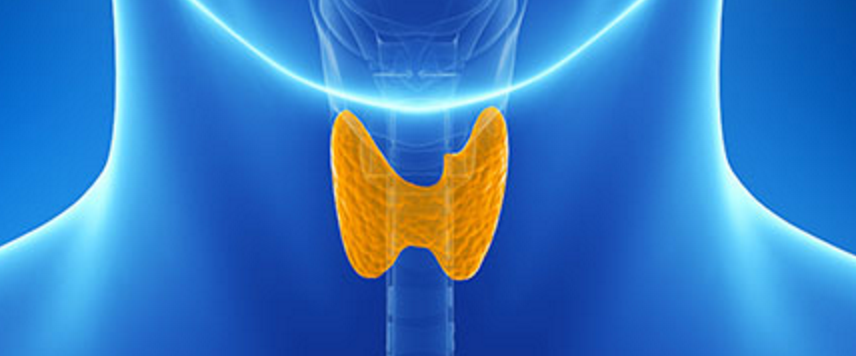The Importance of Thyroid Balance

Many women suffer from thyroid imbalances that go unrecognized by the traditional medical system; leaving them tired and overweight with a significant decrease in mental clarity. The patients I see with thyroid disorders are currently asking for more detailed information about this hormonal condition, and I thought it would be beneficial for me to update and write about thyroid imbalances and how, over the past two decades, I have provided treatment with overwhelming success.
The thyroid gland is situated at the base of the neck above the sternal notch. It has a powerful purpose in the body, regulating metabolism and well-being. A healthy thyroid provides energy, mental clarity, and mental health; as well as functional regulation of many-body systems. When the thyroid becomes sluggish, all of these functions are compromised. It is not necessary to have a diagnosis of thyroid disease for it to not function optimally. Thyroid hormone imbalance is common in midlife women as their hormones begin to shift. In this article, I will focus on the imbalances of thyroid hormones in women.
The production of thyroid hormone is regulated by the pituitary gland that sits in the center of the brain. The pituitary produces a variety of ‘stimulating’ hormones that stimulate all of the endocrine glands to produce their respective hormones. The pituitary secretes Thyroid Stimulating Hormone, or TSH, to stimulate the thyroid gland to produce thyroid hormones. As thyroid hormone levels decline, the TSH level increases. That increase stimulates the thyroid gland to produce more thyroid hormones. The lower the thyroid hormone level, the higher the level of TSH; the higher the thyroid hormone level, the lower the level of TSH. This is a negative feedback loop that, under normal conditions, maintains thyroid balance. All hormones in the body are regulated in this manner through a negative feedback loop with the stimulating hormones.
A normal range for TSH (measured in the blood) listed by the laboratory is between 0.5 and 4.00. As you can see, this range is fairly wide. A level of 4.0 is eight times greater than 0.5. If a woman had a TSH level of 1 which over time increased to 4, this means her thyroid hormone production decreased eightfold necessitating an increase in TSH. Most women feel poorly when thyroid levels drop and will complain of symptoms as described above, but since their TSH is within the normal range, their complaints are usually disregarded by physicians. A rising TSH level means the thyroid is becoming less efficient. This is called thyroid insufficiency or thyroid resistance.
TSH stimulates the thyroid to produce thyroxine or T4. Thyroxine has 4 iodine molecules. It is converted to T3 (triiodothyronine) through a complex process of de-iodination where 1 iodine molecule is removed from T4. A large percentage of both T4 and T3 exist bound to a protein, and a small percentage exists unbound or free. The free hormones are the active hormones which perform the functions on which the body relies. Free T3 regulates metabolism including fat metabolism, keeps the heart rate from slowing down or speeding up, maintains healthy skin, endurance, energy, regulates the sleep cycle, physical and mental well-being. The process of de-iodination of T4 is facilitated by progesterone, DHEA, several micronutrients, vitamins, and minerals like Selenium and Magnesium. A healthy and clean diet rich in iodine, as well as estrogen and progesterone balance, is needed for proper thyroid function.
Why has thyroid imbalance reached unprecedented levels in our society?
In the Great Lakes area, the soil and water are deficient in iodine. In addition, people nowadays eat genetically modified and processed foods, and sea salt (which lacks iodine); further lowering their body’s iodine levels. Iodine is needed to create thyroid hormones. If iodine is low, the thyroid hormone production will be reduced, creating insufficiency or even a hypothyroid state.
Furthermore, when women’s hormones become imbalanced during peri-menopause in midlife, and progesterone levels begin to fall, the conversion of T4 to T3 is compromised. In many women, DHEA levels also drop as the adrenals become stressed. Stress hormones alone can affect thyroid hormone function, diverting the production of free T3 into reverse T3. Many women begin to feel sluggish, with thickening of their waists, muscle aches, and mental fog when this process occurs. This should prompt physicians to check a complete thyroid panel consisting of TSH, free T4, and free T3. Doing so provides a more complete picture of a woman’s thyroid status. The majority of doctors only check the TSH and a ‘reflex T4’ which only runs a free T4 level if/when the TSH is out of the normal range. If the thyroid panel is checked and the free T3 and T4 are in the mid-range with the TSH between 1 and 2, the cause of symptoms lies elsewhere.
In both my personal and professional experience, a rise in the TSH above 2.2 with a drop in the free T4 or free T3 too low normal levels should signal physicians to consider thyroid support or replacement. If a woman is feeling more tired than usual, having difficulty losing weight, losing hair, experiencing a depressed mood, or having sleep disturbances, she may need her diet cleaned up with the addition of iodine-rich foods, or supplemental iodine. DHEA levels may need to be checked and dietary changes may be needed to provide her body with the micro and macronutrients that support the thyroid, restoring its efficiency. If a woman’s female hormones reflect estrogen dominance (low progesterone), this may be contributing to her thyroid insufficiency. As progesterone levels drop, the conversion of T4 to T3 is negatively impacted. Some women may require T3 replacement if this is the case. Conventional T3 replacement is either the brand Cytomel or generic liothyronine. Conventional T4 is brand Synthroid or generic levothyroxine. If free T4 levels are low, she would need T4 replaced, if just free T3 is low, she may need T3 replaced (if other attempts to support the conversion are unsuccessful), and if both are low, she may need both replaced. For many, merely balancing the progesterone level with bio-identical progesterone may bring balance to the thyroid and restore the conversion of T4 to T3. This would result in a normalization of the TSH to below 2.2 and the restoration of well-being.
Some women I see are prescribed Armour thyroid or Nature-Throid (porcine hormones) by their ‘holistic’ practitioners. Many prescribe it to help women lose weight. Many also prescribe high doses of Armour to treat symptoms of fatigue without checking blood levels of thyroid hormones. Many women are over-medicated with this practice. It is very dangerous for anyone to be on hormones (natural or synthetic) without proper monitoring. Armour and Nature-Throid are porcine hormones, not bio-identical to the human body, and furthermore, the pigs these hormones are harvested from are fed GMO corn and raised in factory farms under inhumane conditions. They have high levels of stress hormones in their bodies which impacts thyroid function. I only prescribe these hormones on rare occasions when women are either allergic or intolerant of conventional thyroid hormones. It’s also important that there be close monitoring of their thyroid blood panel every 4 to 6 months once normal levels have been reached. Armor thyroid and Nature-Throid stimulate T3 production at the cost of T4, and over time may suppress T4 creating an imbalance in the thyroid panel. It is common to experience numerous side effects with these hormones, and in many cases, atrial fibrillation, heart failure, diarrhea, and insomnia. They need to be used with caution and regular, careful, blood-level monitoring.
As we can surmise, a healthy thyroid gland is critical to our well-being. Its function is complex and relies on a healthy diet, hormone balance, and healthy adrenal glands. Keeping the thyroid balanced is both an art and a science, and requires a physician to consider all of the factors and interrelationships between diet, lifestyle, and other hormones that collaborate with it to help the gland function efficiently.
So far, both traditional and holistic medicines have not succeeded in balancing thyroid hormones in the majority of midlife women. As Integrative Medicine engages the scientific method and considers the larger context that impacts thyroid function, this approach may be the answer to healing thyroid insufficiency and resistance more successfully than conventional or holistic methods alone.
©Oct 2015, May 2017 Kalpana (Rose) M. Kumar M.D., CEO and Medical Director, The Ommani Center for Integrative Medicine, Pewaukee, WI. Website: www.ommanicenter.com Author of Becoming Real: Reclaiming Your Health in Midlife. 2011, 2014 Medial Press

